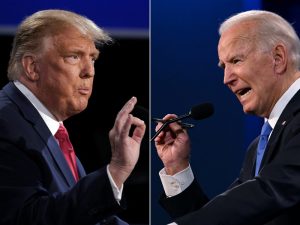
McKenna: Mass. special education needs to get it right
The federal government is reviewing the special education system in Massachusetts to determine if students with disabilities are provided an appropriate education and if proper oversight of service providers such as public schools is given. In essence, this review focuses on the degree to which the civil rights of students with disabilities are met and protected. The state as well as the districts within it must comply with a number of mandates placed upon them by federal policy, all of which contribute to what is commonly referred to as a free appropriate public education (FAPE).
However, districts must comply with these mandates while working within a number of persistent contextual factors that constrain their ability to achieve them. These constraints include the working conditions of special educators (e.g., number of students on their caseload, access to professional development that aligns with their responsibilities, access to necessary curricular resources and materials, access to support from colleagues). Another constraint that impacts the ability of districts to appropriately educate students with disabilities is the availability of special education teachers with sufficient preparation and training to be effective.
Much has been written about special education teacher quality. Discussions tend to center around whether or not special education teachers have earned the necessary state credentials to be considered certified or licensed, as well as the type of certification or license program completed such as traditional or alternative. However, looking at the traditional (e.g., university based) programs available in Massachusetts, there appears to be great variability in the content and skills that are taught.
For example, consider undergraduate programs in Massachusetts that offer pathways to the PreK-8 moderate disabilities teaching credentials. Looking at program web pages, we see great variability in the number of special education-focused courses that students must complete to graduate. For example, some undergraduate programs only require students to complete three courses focusing on teaching students with moderate disabilities before entering their special education teaching practicum, which essentially is the special education version of student teaching. Other undergraduate programs require students to complete many more courses before entering practicum. Unless we believe that “less is more,” it is likely that students that complete more special education courses are better prepared for the challenges of practicum as well as those associated with entering the field of teaching students with disabilities.
We also see great variability in the emphasis of courses within undergraduate programs for the preK-8 moderate disabilities credential. Some programs require students to complete a course in classroom management, which are essential skills for any teacher. If a teacher can’t effectively prevent and respond to challenging behavior, they can’t teach anyone. There also appears to be little course work focusing on providing specialized academic and behavioral interventions to students with moderate disabilities that require such services to benefit from public education.
These types of specialized methods help students benefit from instruction in regular public-school classrooms (e.g., general education). This observation is puzzling if not concerning, as the state has long emphasized access to increasing levels of specialized support for those students who are not making effective progress in regular classrooms.
For example, we see this emphasis in state online trainings focusing on inclusive instruction. Knowledge and skill in specialized methods is also necessary for students with disabilities to benefit from placement in settings designed to educate students with more significant learning and behavioral difficulties. Having a special education workforce with sufficient skill in specialized academic and behavioral supports is critical, as school districts are mandated to provide the full continuum of placement options to students with disabilities. This cannot be done in the absence of special educators trained in specialized methods, which have been the hallmark of the field of the field. If programs in the state don’t teach these skills, then districts are less likely to have access to teachers who enter the field with this set of skills.
There are some encouraging developments. Preparation programs, state, and district representatives have met to discuss “what do teachers with the preK-8 moderate disabilities credential need to know and be able to do to be effective.” These conversations, if ongoing and used to inform change, can lead to improved program alignment with the challenges of being a special educator. The challenges public schools face due to things like COVID-19 related learning loss, social skill deficits, and trauma are well documented. It is likely that some programs credentialed by the state will need to make significant changes so that the number and type of courses they require better align with real world responsibilities.
I for one look forward to rolling up my sleeves and participating in this important work. Students with disabilities, their parents/guardians, and the schools that educate them are counting on us to get this right and to do so quickly.
John William McKenna Ph.D. is Associate Professor of Special Education at the University of Massachusetts Lowell


